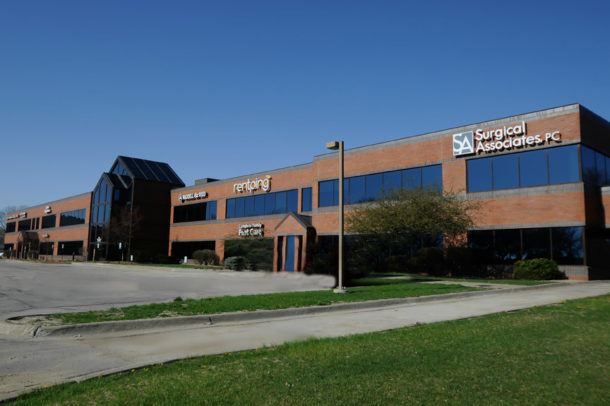March is Colon and Rectal Cancer Awareness month.
We, at Surgical Associates, PC, want to partner with you to help decrease the rates of colon and rectal cancer. Prevention of this disease is key and can be done simply. Do you have questions like these?
- How dangerous are health issues with the colon?
- What are preventative measures?
- What kind of diet is colon healthy?
- What kind of treatments are there available?
- What are the signs you have trouble with the colon?
- When should you see a doctor about colon problems?
Colon and rectal cancer make up the third leading cause of cancer in both men and women.
Unfortunately, it also is the second leading cause of cancer deaths. Colon and rectal cancer are called the “silent killers” because once you have symptoms, most of the time, it is more advanced disease. A diet high in fiber, fruits and vegetables and avoiding processed meats help keep your colon healthy. Exercising, avoiding smoking and alcohol in moderation also make a difference in your colon’s health. Symptoms to monitor yourself and your family members for include change in bowel habits, weight loss, appetite changes, blood in your stool, or black, tarry stools. Please let our primary care provider know if you or your loved ones are experiencing any of these. We have noticed a decline in the rates of colon cancer due to the increased rates of screening but not enough people are getting their colon and rectal cancer screenings done. Do not let this happen to you or your family members. Here in Nebraska only 65% of the eligible people for screening are actually getting it done.
Screening is used to find polyps, precancerous mounds of tissue called polyps before they change into cancer.
Screening should be done in anyone age 50 or over. If you have a personal or family history of polyps, cancer or inflammatory bowel disease you will need to start screening at a younger age. Screening has more options now and it is important to work with your primary care provider or us, at Surgical Associates, PC to find the options that works best for you. Screening options include a stool DNA test called Cologuard. It is only for patients under normal screening indications. This cannot be used for patients with a history of polyps or a family history of polyps or someone with inflammatory bowel diseases. Fecal occult blood tests in combination with other modalities can be used. Radiology studies such as a virtual colonoscopy and barium enema can also be utilized. If any of these screening test yield a positive results, these need to be followed up with a diagnostic test– a colonoscopy. Colonoscopy can be used both for screening and diagnostic purposes. It allows the physician to find and remove precancerous polyps. The goal is to remove polyps before they turn into cancer. It is important to remember that if you have a positive screen, DO NOT ignore it. GO the next step, follow it up with diagnostic testing.
Screening prevention can save lives.
If a large polyp or cancer is found on a screening or diagnostic test there are treatment options. Cancer needs to be staged to select the best course of treatment plan. The treatment options can include combinations of surgery, chemotherapy and radiation. Surgical treatments can be minimally invasive using the robot or laparoscope so small incisions can be used and the patient can heal with less pain and quicker time to healing. Ultimately the best way to treat cancer is to avoid it. Screening is the best prevention.

